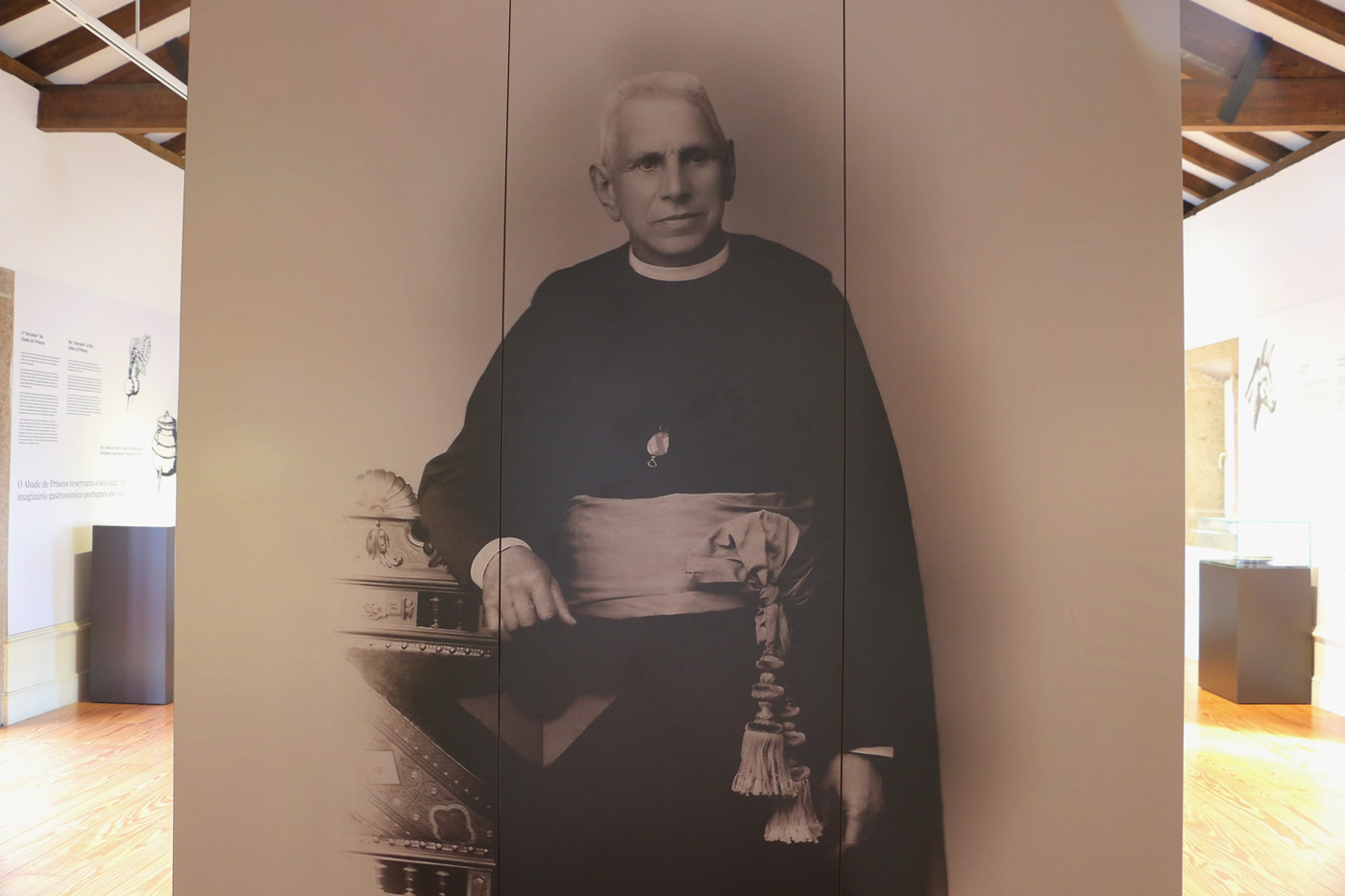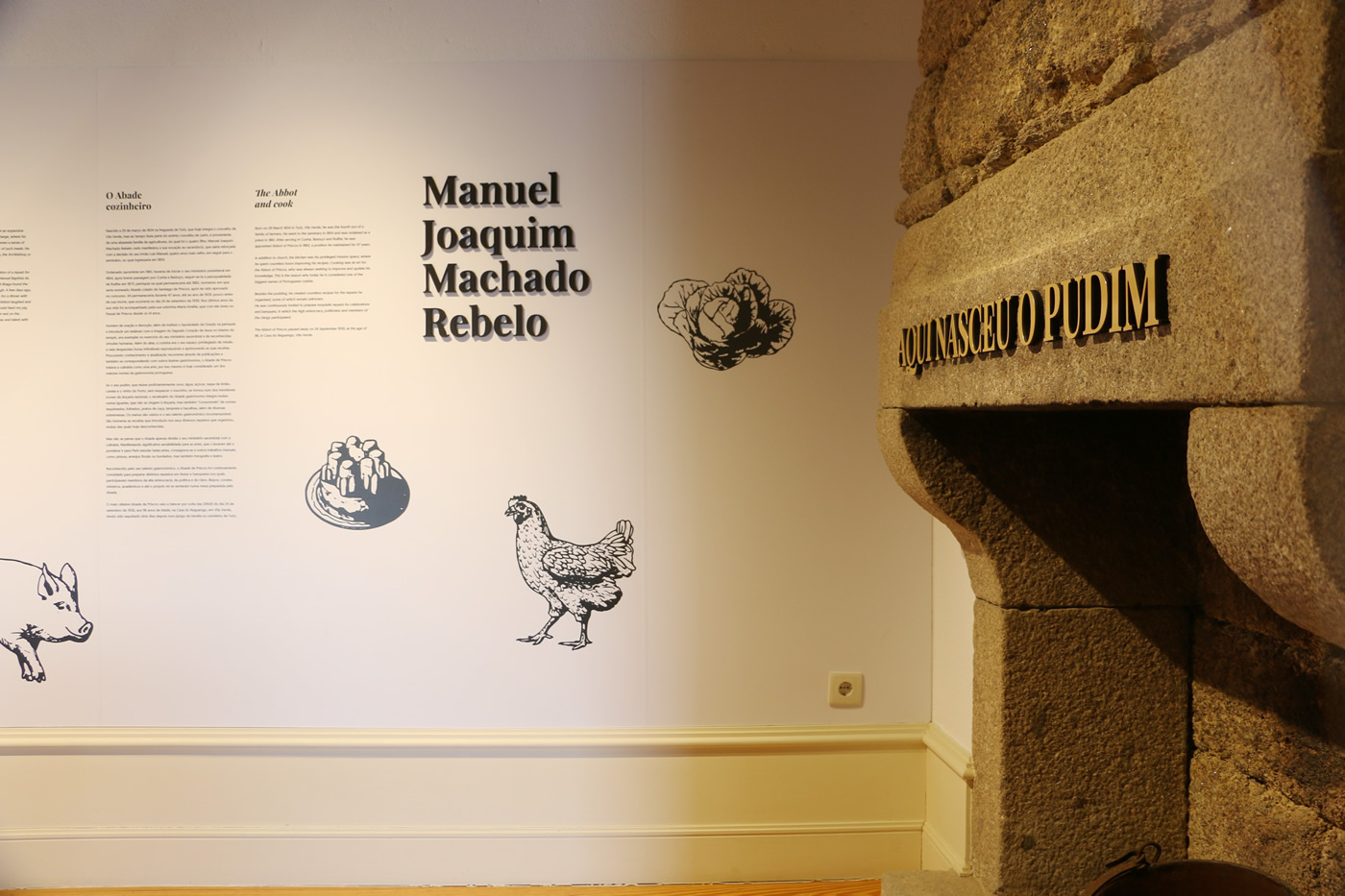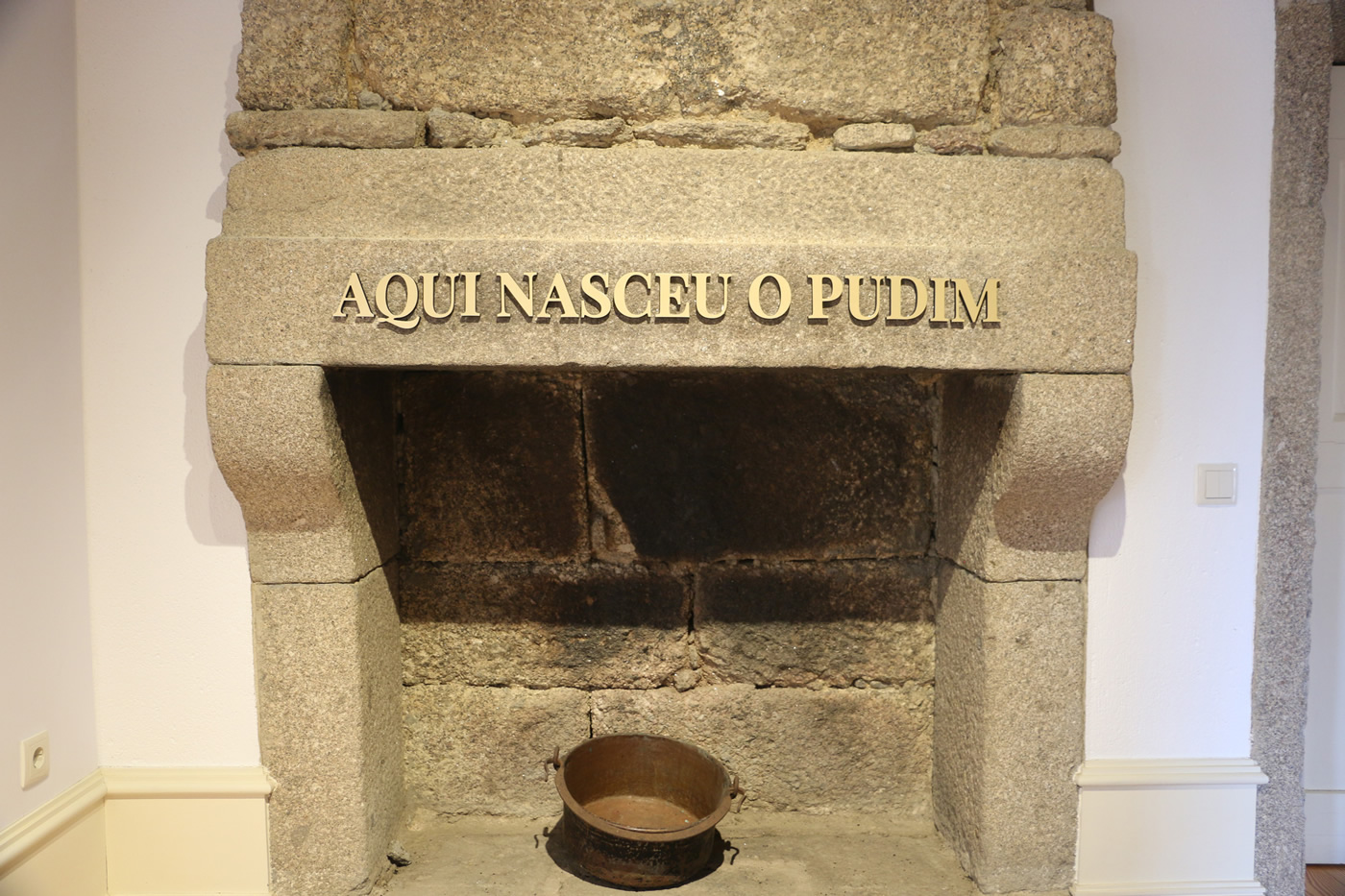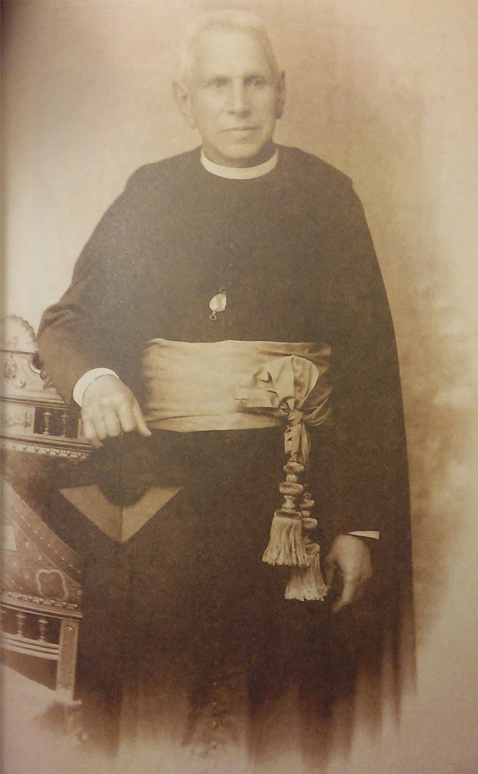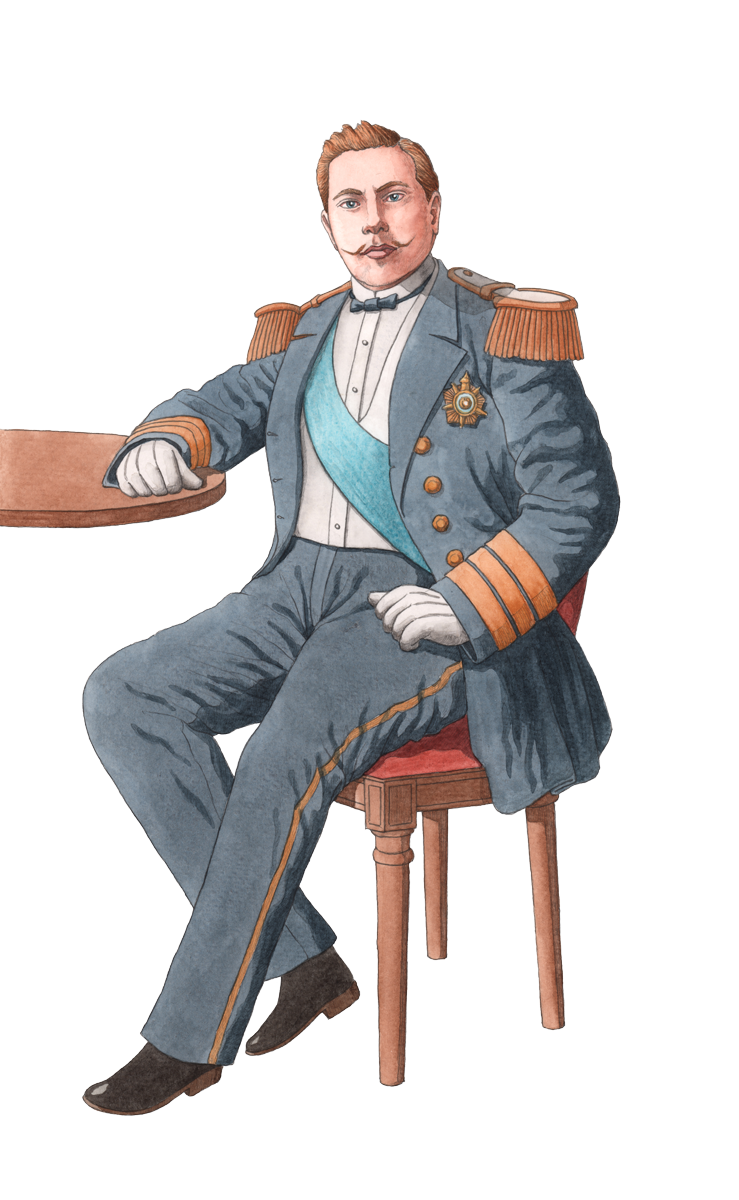THE ABBOT AND COOK
THE ABBOT AND COOK

Manuel Joaquim Rebelo (1834-1930) could have gone down in history simply as another Vicar of the parish of Priscos. However, his singular devotion to gastronomy granted him a special place in the context of national cuisine. At the table of the Abbot of Priscos, as he was called, sat kings, ministers and bishops. The pudding he cooked is, to this day, the greatest ambassador of Priscos.

Manuel Joaquim Rebelo (1834-1930) could have gone down in history simply as another Vicar of the parish of Priscos. However, his singular devotion to gastronomy granted him a special place in the context of national cuisine. At the table of the Abbot of Priscos, as he was called, sat kings, ministers and bishops. The pudding he cooked is, to this day, the greatest ambassador of Priscos.
Born on 29 March 1834 in the parish of Turiz, which, at the time, was part of the extinct municipality of Larim, now the municipality of Vila Verde, he was the fourth son of a wealthy family of farmers.
Manuel Joaquim Machado Rebelo soon manifested his vocation for priesthood, which would only be reinforced by the decision of his older brother by four years, Luís Manuel, to join the seminary, as Manuel Joaquim did in 1854.
Born on 29 March 1834 in the parish of Turiz, which, at the time, was part of the extinct municipality of Larim, now the municipality of Vila Verde, he was the fourth son of a wealthy family of farmers.
Manuel Joaquim Machado Rebelo soon manifested his vocation for priesthood, which would only be reinforced by the decision of his older brother by four years, Luís Manuel, to join the seminary, as Manuel Joaquim did in 1854.
A very frugal cook

It should be noted that the Abbot of Priscos was not an expensive chef, at all. Every service he provided was free of charge, where his sole takeaways were the pleasure of cooking, and even a sense of mission, resulting from undertaking the preparation of such meals. He put in the same dedication, whether it was the King, the Archbishop or a modest family sitting at his table. One of the episodes reported refers to the preparation of a repast for some clergymen, by request of the Archbishop D. Manuel Baptista da Cunha. Urged to write a shopping list, the prelate of Braga found the amount of potatoes scarce and said: “Think it through. A few days ago, my cook bought a much larger portion of potatoes for a dinner with fewer guests. Make sure we do not look bad”. The Abbot laughed and said: “Your Grace, with that amount of potatoes, I could feed my pig for half a year.” The refinement of his cuisine did not rest on the quantity or quality of products, but rather on the way and talent with which they were cooked.
A very frugal cook

It should be noted that the Abbot of Priscos was not an expensive chef, at all. Every service he provided was free of charge, where his sole takeaways were the pleasure of cooking, and even a sense of mission, resulting from undertaking the preparation of such meals. He put in the same dedication, whether it was the King, the Archbishop or a modest family sitting at his table. One of the episodes reported refers to the preparation of a repast for some clergymen, by request of the Archbishop D. Manuel Baptista da Cunha. Urged to write a shopping list, the prelate of Braga found the amount of potatoes scarce and said: “Think it through. A few days ago, my cook bought a much larger portion of potatoes for a dinner with fewer guests. Make sure we do not look bad”. The Abbot laughed and said: “Your Grace, with that amount of potatoes, I could feed my pig for half a year.” The refinement of his cuisine did not rest on the quantity or quality of products, but rather on the way and talent with which they were cooked.
A very frugal cook

It should be noted that the Abbot of Priscos was not an expensive chef, at all. Every service he provided was free of charge, where his sole takeaways were the pleasure of cooking, and even a sense of mission, resulting from undertaking the preparation of such meals. He put in the same dedication, whether it was the King, the Archbishop or a modest family sitting at his table. One of the episodes reported refers to the preparation of a repast for some clergymen, by request of the Archbishop D. Manuel Baptista da Cunha. Urged to write a shopping list, the prelate of Braga found the amount of potatoes scarce and said: “Think it through. A few days ago, my cook bought a much larger portion of potatoes for a dinner with fewer guests. Make sure we do not look bad”. The Abbot laughed and said: “Your Grace, with that amount of potatoes, I could feed my pig for half a year.” The refinement of his cuisine did not rest on the quantity or quality of products, but rather on the way and talent with which they were cooked.
THE PUDDING
THE PUDDING
SERVING STRAW TO THE KING
SERVING STRAW TO THE KING
THE “INVENTOR” OF THE ABBOT
THE “INVENTOR” OF THE ABBOT
ABBOT MANUEL REBELO
ABBOT MANUEL REBELO








